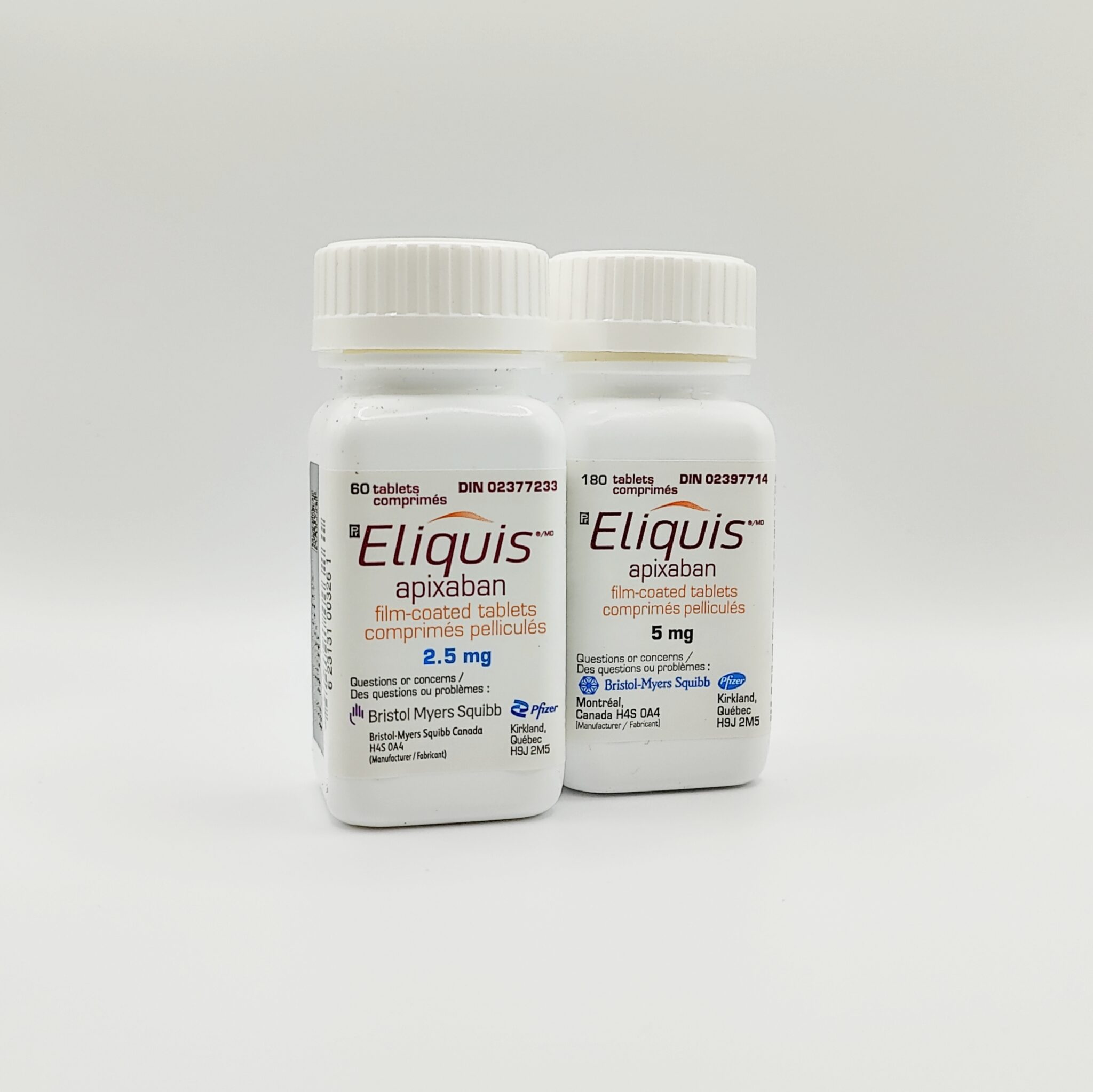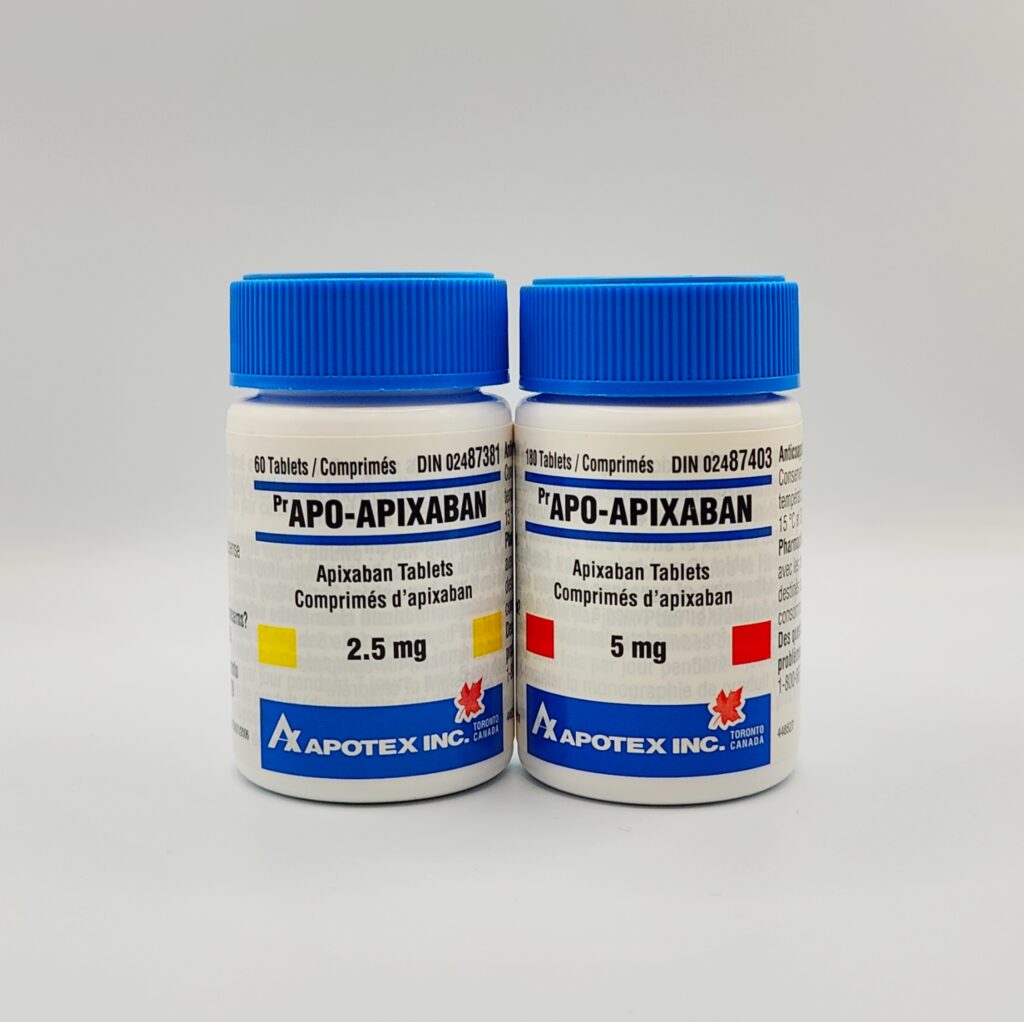Eliquis (Apixaban) and Heart Valve Replacements: What Patients Need to Know
Eliquis (Apixaban) and Heart Valve Replacements: What Patients Need to Know
- Todd P
Eliquis (apixaban) is a commonly prescribed anticoagulant used to prevent blood clots in conditions like atrial fibrillation and after certain surgeries. However, its use in patients with heart valve replacements depends on the type of valve and individual circumstances. This blog explains when Eliquis is appropriate, when it isn’t, and alternative anticoagulants available for managing clotting risks in patients with valve replacements.
Understanding Heart Valve Replacements
Heart valve replacements are used to treat conditions like severe valve disease or failure. There are two main types of heart valve replacements:
1. Mechanical Valves: Made of durable materials like metal or carbon, these valves can last a lifetime but require long-term anticoagulation to prevent clot formation.
2. Biological (Tissue) Valves: Made from animal tissue (e.g., pig or cow) or human tissue, these valves tend to wear out over time but usually require less aggressive anticoagulation.
When Can You Use Eliquis for Heart Valve Replacements?
Eliquis is approved for use in patients with non-valvular atrial fibrillation, meaning those with atrial fibrillation not caused by a heart valve problem. It is also used to prevent and treat blood clots in other settings, but its role in heart valve replacement patients is more limited.
Biological (Tissue) Valves
- Can Be Used:
For patients with biological valves and a low risk of clot formation, Eliquis may be considered after the initial postoperative period. This typically occurs several months after surgery once the risk of clotting decreases. - Why It Works:
Biological valves are less likely to cause clotting compared to mechanical valves, making Eliquis a safer choice for some patients.
Mechanical Valves
- Cannot Be Used:
Eliquis is not recommended for patients with mechanical heart valves. Studies have shown that direct oral anticoagulants (DOACs) like Eliquis are less effective and may increase the risk of valve thrombosis (blood clots on the valve) compared to warfarin. - Why It’s Not Suitable:
Mechanical valves create a higher risk of clot formation, requiring the stronger and well-studied anticoagulant effects of warfarin
Alternatives to Eliquis for Heart Valve Patients
When Eliquis isn’t an option, other anticoagulants can be used depending on the type of valve and patient-specific factors:
1. Warfarin
- Best for Mechanical Valves:
Warfarin is the standard anticoagulant for patients with mechanical valves. It requires regular blood monitoring (INR tests) to maintain the correct dosage but is highly effective at preventing clots. - Also Used for Some Biological Valves:
Warfarin may be prescribed temporarily after biological valve replacement, especially during the early postoperative period.
2. Aspirin
- For Low-Risk Patients:
In some cases, patients with biological valves may only require aspirin to reduce the risk of clots. This is usually determined by the surgeon or cardiologist based on the patient’s overall health.
3. Other DOACs
- Limited Role:
Medications like rivaroxaban (Xarelto) or dabigatran (Pradaxa) are being studied for use in certain heart valve patients, but they are not yet widely recommended for mechanical valves.
Key Considerations for Patients
Follow Your Doctor’s Recommendations
- The choice of anticoagulant depends on your valve type, medical history, and individual risk factors. Always consult your cardiologist or surgeon before making changes to your medication.
Monitor Blood Clot Risk
- Clotting risks are highest in the early weeks after valve surgery. Your doctor will determine the best anticoagulant and monitor your progress.
Be Aware of Bleeding Risks
- All anticoagulants increase the risk of bleeding. Notify your healthcare provider if you experience unusual bruising, bleeding, or signs of internal bleeding like black stools or severe headaches.
Stick to Follow-Up Appointments
- Regular follow-ups and testing are crucial for patients on anticoagulants, particularly if taking warfarin, which requires INR monitoring.
Conclusion
Eliquis is a convenient and effective anticoagulant for many conditions, but its use in heart valve replacement patients depends on the type of valve. While it may be appropriate for some patients with biological valves, it is not recommended for those with mechanical valves. Alternatives like warfarin or aspirin remain the standard for managing clot risks in these cases.
For U.S. patients seeking affordable options, Canadian prescription referral services can provide access to Eliquis and other anticoagulants at a lower cost. Always consult your healthcare provider to determine the best treatment plan for your needs.


